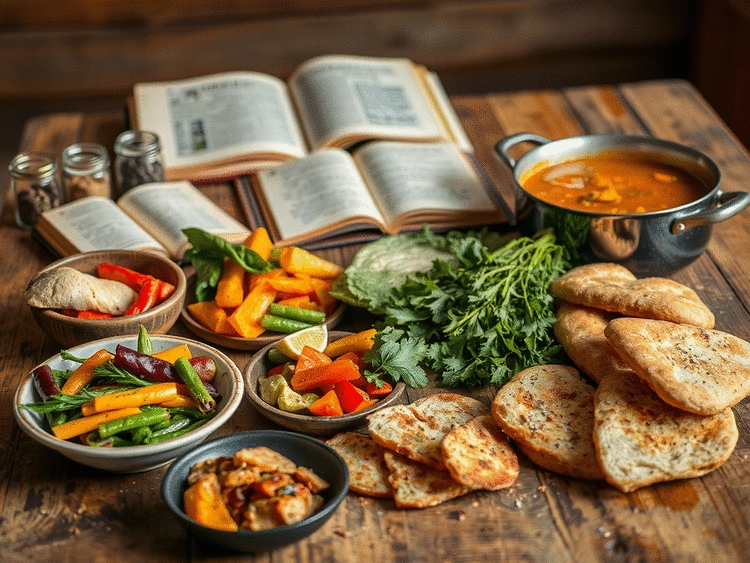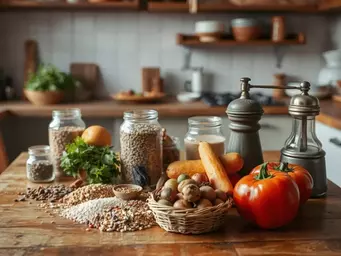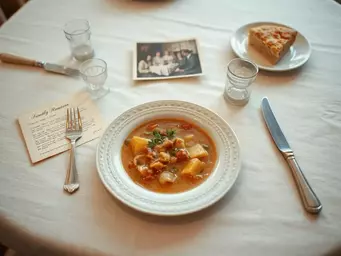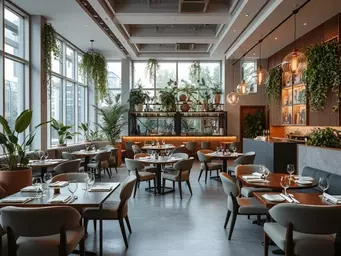What if the meals you cherish are actually the stories of your heritage? In a world where globalization threatens to erase culinary diversity, exploring forgotten food traditions becomes an essential journey of discovery.
What You Will Learn
- Forgotten food traditions are crucial for preserving cultural identity and heritage.
- Culinary practices serve as memory makers and community bonds, strengthening relationships through shared meals.
- Globalization and changing lifestyles pose threats to traditional culinary practices, risking their extinction.
- Engaging with culinary heritage fosters respect and appreciation for diverse cultures and their unique flavors.
- Preserving food traditions can promote environmental sustainability by emphasizing local resources and seasonal ingredients.
- Everyone can contribute to cultural preservation efforts by supporting local farmers, sharing family recipes, and advocating for food heritage policies.
Preserving Culinary Heritage: Challenges and Contributions
This visual highlights the key reasons why traditional food practices are at risk and actionable steps individuals can take to support their preservation. For additional insights into food preservation, consider exploring various food preservation methods.
Why Traditions are at Risk
- Economic Pressures: Small producers struggle with industrial agriculture.
- Loss of Knowledge: Younger generations may not learn traditional skills.
- Cultural Assimilation: Global trends overshadow local flavors.
How You Can Contribute
- Support Local Farmers: Buy ingredients from traditional methods.
- Participate in Workshops: Join classes on regional cuisines.
- Share Family Recipes: Document and share dishes across generations.
- Advocate for Policy Changes: Support food heritage preservation.
Understanding Forgotten Food Traditions and Their Importance
At Born Foodie, we believe that every dish is a story waiting to be told, and forgotten food traditions are some of the most compelling narratives we can explore. These traditions are the threads that weave together cultural identity and heritage, reflecting the rich tapestry of human experience. Understanding their significance is crucial, not just for preserving culinary practices, but also for fostering a deeper appreciation of the food we consume.
Food is not just sustenance; it’s a way to connect with our past and each other. When we delve into forgotten culinary traditions, we uncover the values, beliefs, and practices of cultures that have shaped our dining experiences. This exploration enriches our understanding of food’s role in society, allowing us to embrace and celebrate diversity in our culinary journeys.
The Cultural Significance of Culinary Heritage
Culinary heritage represents more than just recipes; it embodies history, geography, and human connection. Food traditions often serve as a bridge between generations, where recipes are passed down, each family adding its unique flair. This process not only preserves flavors but also keeps alive the stories and memories associated with them. To learn more about how different cultures celebrate food, check out our article on food and culture.
- Memory Makers: Dishes often evoke memories of family gatherings, celebrations, and rituals.
- Community Bonds: Cooking and sharing meals foster relationships and strengthen community ties.
- Identity Shapers: Culinary practices help define cultural identity and heritage.
As we explore these traditions, we can better appreciate the emotional and sensory connections they hold. Every bite taken from a dish steeped in tradition carries with it echoes of the past, offering a taste of history that resonates deeply within us.
Why Certain Food Traditions Are on the Verge of Extinction
Even as we cherish these traditions, many are at risk of being lost forever. Factors such as globalization, urbanization, and changing lifestyles threaten the survival of traditional culinary practices. As we become more interconnected, unique local traditions often give way to a homogenized food culture.
- Economic Pressures: Small producers struggle to compete with industrialized agriculture.
- Loss of Knowledge: Younger generations may move away from family cooking, leading to a decline in traditional skills.
- Cultural Assimilation: Global cuisine trends can overshadow local flavors and recipes.
It’s crucial for us to recognize these challenges and take decisive action. The stories behind these traditions are worth preserving, and it’s our responsibility to ensure they continue to echo through time.
The Role of Cultural Gastronomy in Food Identity
Cultural gastronomy plays a vital role in shaping our food identity. It highlights the relationships between cuisine, culture, and community, revealing how food evolves alongside us. As we engage with our culinary heritage, we not only discover flavors but also the profound impact they have on our personal and collective identities. For a deeper dive into the world of unique ingredients and their cultural significance, explore our guide on exotic vegetables and fruits.
- Food as a Cultural Identifier: Dishes often symbolize cultural pride and community cohesion.
- Innovation through Tradition: Traditional practices inspire modern culinary trends while maintaining roots in history.
- Education and Awareness: Understanding culinary heritage fosters respect for diverse cultures and their practices.
At Born Foodie, we aim to highlight these connections, encouraging readers to explore their own culinary identities while honoring the stories behind each dish. By embracing the rich narratives woven into our food, we can cultivate a deeper appreciation for the culinary traditions that shape our lives.
Frequently Asked Questions (FAQs) About Forgotten Food Traditions
What are forgotten food traditions?
Forgotten food traditions are culinary practices, recipes, and techniques that have been passed down through generations but are at risk of being lost due to various modern factors. They are integral to cultural identity and heritage.
Why is it important to preserve culinary heritage?
Preserving culinary heritage is crucial for maintaining cultural identity, fostering community bonds, and connecting with our past. These traditions offer unique flavors, sustainable practices, and insights into the values and beliefs of diverse cultures.
What factors threaten traditional food practices?
Key threats include economic pressures from industrial agriculture, loss of knowledge as younger generations move away from traditional cooking, cultural assimilation due to global trends, and urbanization leading to lifestyle changes.
How can individuals contribute to preserving forgotten food traditions?
Individuals can contribute by supporting local farmers, participating in workshops on regional cuisines, documenting and sharing family recipes, and advocating for policies that promote food heritage preservation.
What is the role of cultural gastronomy in food identity?
Cultural gastronomy highlights the deep connections between food, culture, and community. It shows how food symbolizes cultural pride, inspires modern culinary innovation rooted in history, and fosters respect for diverse culinary practices through education and awareness.
We Want to Hear From You!
What forgotten food traditions resonate with you? Share your thoughts and experiences below! We believe that every dish has its own tale waiting to be uncovered.
Reflecting on the Journey of Culinary Heritage Preservation
As a passionate culinary storyteller, I often find myself reflecting on the importance of preserving forgotten food traditions. These culinary practices are not just recipes; they are the narratives that bind us to our ancestors and cultures. In our fast-paced, modern world, it’s easy to overlook the richness that these traditions bring to our dining experiences. They hold the flavors, stories, and memories that make each meal a celebration of identity.
The value of these traditions today cannot be overstated. They remind us of our roots, offering a sense of belonging and continuity in a society that often prioritizes the new over the traditional. By exploring these culinary heritages, we not only learn about the past but also develop a deeper appreciation for the cultural diversity that shapes our global food landscape. What forgotten food traditions resonate with you? Each dish has its own tale waiting to be uncovered!
Understanding the Value of Forgotten Food Traditions Today
So, why should we care about preserving these culinary gems? The reasons are plentiful:
- Connection to Culture: Forgotten food traditions foster a sense of identity and belonging.
- Environmental Sustainability: Many traditional practices emphasize local resources and seasonal ingredients.
- Flavor Diversity: These dishes bring unique flavors and techniques that can enrich our culinary experiences.
- Community Building: Engaging with these traditions can strengthen community ties through shared meals and stories.
By embracing these values, we can ensure that the lessons and flavors of our ancestors are not lost to time. It’s about celebrating the past while making it relevant in our modern kitchens.
How You Can Contribute to Cultural Preservation Efforts
Preserving forgotten food traditions is a collective effort that requires active participation. Here are a few ways you can make a difference:
- Support Local Farmers: Buy ingredients from local farms that practice traditional methods.
- Participate in Workshops: Join cooking classes that focus on regional or historical cuisines.
- Share Your Family Recipes: Document and share dishes passed down through generations to keep those traditions alive.
- Advocate for Policy Changes: Get involved in supporting policies that promote food heritage preservation.
Each small action can lead to significant changes in how we view and value our culinary heritage. You might be surprised at how rewarding it is to connect with your food on a deeper level.
Recap of Key Points
Here is a quick recap of the important points discussed in the article:
- Importance of Forgotten Food Traditions: These culinary practices connect us to our cultural heritage and identity.
- Cultural Significance: Culinary heritage serves as a bridge between generations, preserving memories and community bonds.
- Challenges Faced: Globalization, urbanization, and changing lifestyles threaten the survival of traditional culinary practices.
- Value Beyond Taste: Forgotten food traditions foster a sense of belonging, emphasize sustainability, and enrich flavor diversity.
- Ways to Contribute: Supporting local farmers, participating in workshops, and sharing family recipes can help preserve these traditions.







